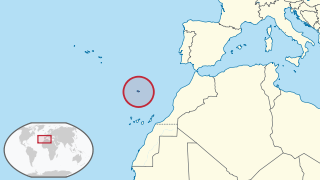
A chemist is a scientist trained in the study of chemistry. Chemists study the composition of matter and its properties. Chemists carefully describe the properties they study in terms of quantities, with detail on the level of molecules and their component atoms. Chemists carefully measure substance proportions, reaction rates, and other chemical properties. The word 'chemist' is also used to address Pharmacists in Commonwealth English.
Polymer chemistry is a sub-discipline of chemistry that focuses on the chemical synthesis, structure, chemical and physical properties of polymers and macromolecules. The principles and methods used within polymer chemistry are also applicable through a wide range of other chemistry sub-disciplines like organic chemistry, analytical chemistry, and physical chemistry Many materials have polymeric structures, from fully inorganic metals and ceramics to DNA and other biological molecules, however, polymer chemistry is typically referred to in the context of synthetic, organic compositions. Synthetic polymers are ubiquitous in commercial materials and products in everyday use, commonly referred to as plastics, and rubbers, and are major components of composite materials. Polymer chemistry can also be included in the broader fields of polymer science or even nanotechnology, both of which can be described as encompassing polymer physics and polymer engineering.
Supramolecular chemistry is the domain of chemistry concerning chemical systems composed of a discrete number of molecules. The strength of the forces responsible for spatial organization of the system range from weak intermolecular forces, electrostatic charge, or hydrogen bonding to strong covalent bonding, provided that the electronic coupling strength remains small relative to the energy parameters of the component. Whereas traditional chemistry concentrates on the covalent bond, supramolecular chemistry examines the weaker and reversible non-covalent interactions between molecules. These forces include hydrogen bonding, metal coordination, hydrophobic forces, van der Waals forces, pi–pi interactions and electrostatic effects.

The University of Madeira (UMa; Portuguese: Universidade da Madeira, pronounced [univɨɾsiˈðad dɐ mɐˈðɐjɾɐ], is a Portuguese public university, created in 1988 in Funchal, Madeira. The university offers first, second cycle and Doctorate academic degrees in a wide range of fields, in accordance with the Bologna process. It is now under the CMU/Portugal agreement with Carnegie Mellon University, having master programme in Computer Engineering, Human Computer Interaction and Entertainment Technology. Students admitted will be eligible for scholarships and have internship opportunity during the summer break. In addition, Madeira Interactive Technologies Institute, founded in January 2010, is devoted to building international partnership with other educational institutes and industry.

Sir James Fraser Stoddart is a Scottish chemist who is Board of Trustees Professor of Chemistry and head of the Stoddart Mechanostereochemistry Group in the Department of Chemistry at Northwestern University in the United States. He works in the area of supramolecular chemistry and nanotechnology. Stoddart has developed highly efficient syntheses of mechanically-interlocked molecular architectures such as molecular Borromean rings, catenanes and rotaxanes utilizing molecular recognition and molecular self-assembly processes. He has demonstrated that these topologies can be employed as molecular switches. His group has even applied these structures in the fabrication of nanoelectronic devices and nanoelectromechanical systems (NEMS). His efforts have been recognized by numerous awards including the 2007 King Faisal International Prize in Science. He shared the Nobel Prize in Chemistry together with Ben Feringa and Jean-Pierre Sauvage in 2016 for the design and synthesis of molecular machines.

Nature Chemical Biology is a monthly, peer-reviewed, scientific journal, which is published by Nature Publishing Group. It was first published in June 2005. Terry L. Sheppard is a full-time professional editor with the title, "Chief Editor", and employed by Nature Chemical Biology.
The Max Planck Institute for Solid State Research was founded in 1969 and is one of the 82 Max Planck Institutes of the Max Planck Society. It is located on a campus in Stuttgart, together with the Max Planck Institute for Intelligent Systems.
The Max Planck Institute of Colloids and Interfaces is located in Potsdam-Golm Science Park in Golm, Potsdam, Germany. It was founded in 1990 as a successor of the Institute for Physical Chemistry and for Organic Chemistry, both in Berlin-Adlershof, and for Polymer Chemistry in Teltow. In 1999, it transferred to newly constructed extension facilities in Golm. It is one of 80 institutes in the Max Planck Society (Max-Planck-Gesellschaft).
Tobin Jay Marks is the Vladimir N. Ipatieff Professor of Catalytic Chemistry and Professor of Material Science and Engineering, Department of Chemistry, Northwestern University. Among the themes of his research are synthetic organo-f-element and early-transition metal organometallic chemistry, polymer chemistry, materials chemistry, homogeneous and heterogeneous catalysis, molecule-based photonic materials, superconductivity, metal-organic chemical vapor deposition, and biological aspects of transition metal chemistry.

The Max Planck Institute for Medical Research in Heidelberg, Germany, is a facility of the Max Planck Society for basic medical research. Since its foundation, six Nobel Prize laureates worked at the Institute: Otto Fritz Meyerhof (Physiology), Richard Kuhn (Chemistry), Walther Bothe (Physics), André Michel Lwoff, Rudolf Mößbauer (Physics), Bert Sakmann and Stefan W. Hell (Chemistry).

The Max Planck Institute for Coal Research is an institute located in Mülheim an der Ruhr, Germany specializing in chemical research on catalysis. It is one of the 80 institutes in the Max Planck Society (Max-Planck-Gesellschaft). Founded in 1912 as the Kaiser Wilhelm Institute for Coal Research in Mülheim an der Ruhr to study the chemistry and uses of coal, it became an independent Max Planck Institute in 1949.

The Fritz Haber Institute of the Max Planck Society (FHI) is a science research institute located at the heart of the academic district of Dahlem, in Berlin, Germany.
The School of Chemistry is a school of the University of Edinburgh, in Scotland.In the 2008 Research Assessment Exercise (RAE) the school was ranked sixth in the UK.
Materials Studio is software for simulating and modeling materials. It is developed and distributed by BIOVIA, a firm specializing in research software for computational chemistry, bioinformatics, cheminformatics, molecular dynamics simulation, and quantum mechanics.
The Institut des molécules et de la matière condensée de Lille - IMMCL Chevreul is a physics and chemistry research institute. It is a member of the University of Lille.

The Thomas Young Centre (TYC) is an alliance of London research groups working on the theory and simulation of materials (TSM). It is named after the celebrated scientist and polymath Thomas Young (1773–1829), who lived and worked in London and is known in the world of science for a number of important discoveries concerning the wave nature of light, the theory of vision, the elastic properties of solids, and the theory of surface tension. The participating research groups are based mainly at Imperial College London, King's College London, Queen Mary University of London (QMUL) and University College London (UCL), but there are also members at the National Physical Laboratory in Teddington. The aims of the TYC are to foster collaboration between TSM research groups in London, to provide a world-class source of graduate education in the field, and to address problems of major importance to industry and society. The current (2009) membership of TYC numbers about 80 research groups, of which six are led by Fellows of the Royal Society.
Ayyappanpillai Ajayagosh is an organic chemist, academic and the director of the National Institute for Interdisciplinary Science and Technology. He is known for his studies on supramolecular assemblies and light induced sensor systems and is an elected fellow of all the three major Indian science academies viz. the National Academy of Sciences, India, Indian National Science Academy and the Indian Academy of Sciences as well as The World Academy of Sciences. The Council of Scientific and Industrial Research, the apex agency of the Government of India for scientific research, awarded him the Shanti Swarup Bhatnagar Prize for Science and Technology, one of the highest Indian science awards for his contributions to Chemical Sciences in 2007. He received the TWAS Prize of The World Academy of Sciences in 2013.
Swapan Kumar Pati is an Indian quantum chemist, a professor of the department of chemistry at the Jawaharlal Nehru Centre for Advanced Scientific Research and the head of the Quantum Theory Molecules to Materials Group at the institute. He is known for his studies on electronic optical and magnetic phenomena in molecular systems and is an elected fellow of the Indian Academy of Sciences, National Academy of Sciences, India and The World Academy of Sciences. The Council of Scientific and Industrial Research, the apex agency of the Government of India for scientific research, awarded him the Shanti Swarup Bhatnagar Prize for Science and Technology, one of the highest Indian science awards, in 2010, for his contributions to chemical sciences.








